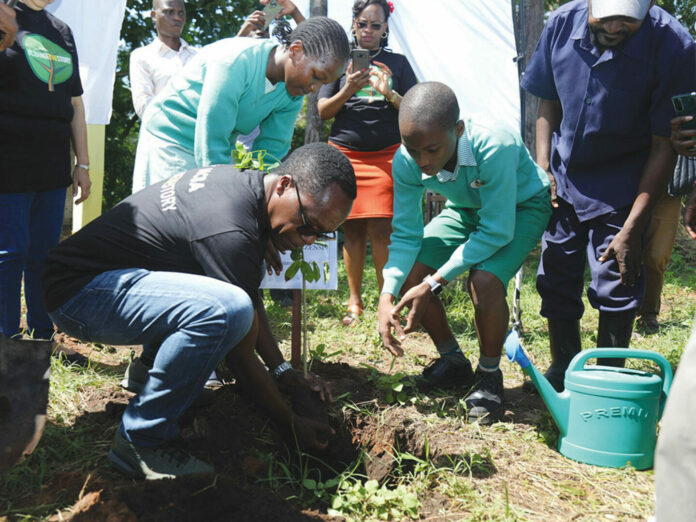Over the past two years, Kenya has experienced one of the worst climate swings in years. Between 2022 and 2023, the country was struck by a severe drought. Within this period, Kenya experienced up to five consecutive below-average rainy seasons. This resulted in the longest and most severe drought in recent history that sparked a humanitarian crisis across the Arid and Semi-Arid Lands (ASAL) in the country.
Almost 95 per cent of water pans dried up in 2022 and up to 6.4 million people were estimated to require humanitarian assistance as of 2023. Enter 2024. The climate pendulum in Kenya swung again, this time from severe drought to deadly floods. By April 2024, many parts of the country were covered in floods so intense that they evoked the memories of the 1998 El Nino deluge.
Although now the country’s weather appears to have stabilized, fear persists that it could be just a matter of time before the pendulum swings to either of the two extreme opposites. This fear is not unfounded. Climate change has become a real threat that is nowadays leaving a trail of devastation more than ever. “You just need to observe the effects that climate has had on the country’s economy to appreciate the urgency in taking action,” says NCBA Group chief executive officer John Gachora.
Kenyan lady who returned from abroad to turn dry Turkana into green farms
Mr. Gachora’s take reflects what meteorological data shows. For instance, according to the State of the Climate – Kenya 2020 Report by the Kenya Meteorological Department, temperature values that were recorded in Kenya during 2020 were higher than the average temperature that was recorded in the 1981 to 2012 period. At the same time, the cold season for Kenya which falls between the months of June and August recorded the greatest deviation from normal.
In the same vein, the Ministry of Environment states in Kenya’s National Climate Change Response Strategy 2022 that Kenya is feeling the impact of climate change that is ranging from higher temperatures, unpredictable rainfall patterns, increased incidences of droughts and floods, and rising sea levels. The Ministry of Environment further states in the report that these rapid changes have contributed to the loss of lives, diminished livelihoods, damaged infrastructure, and reduced crop and livestock production.
“Kenya’s climate is changing. The country has experienced a general warming trend since 1960, and the trend of rising temperatures is expected to continue. Rainfall patterns have changed, with the long rainy season becoming shorter and dryer and the short rainy season becoming longer and wetter,” the Environment Ministry states in the report.
“Droughts have intensified in terms of frequency, severity and coverage over the past few decades. Sea level rise along Kenya’s Indian Ocean coast, caused by increased melting of land-based ice such as glaciers and ice sheets and thermal expansion, caused by warming of the ocean, is projected to be greater than the global average of 26 to 82 centimetres by the 2080s.”
The impact of climate change can be reduced through mitigation efforts by both the government and the private sector. A spot check on Kenya’s climate change fight by the private sector shows that the NCBA Group is at the forefront. For instance, in August 2023, the NCBA Group committed to mobilize Sh30 billion for green and sustainable financing by the year 2030.
The banking group has identified sustainability as one of its priorities and has set 15 ambitious commitments that it seeks to realize by 2030. These include growing 10 million trees through strategic partnerships within the private sector and with the national government. NCBA is also working towards the elimination of single-use plastic, ensuring 100 per cent waste recycling, greening its supply chain and investing significantly in deploying EV charging stations across the region.
“Our enhanced and bolder commitments recognize that climate change is a significant and pressing challenge not only globally but also locally,” says Gachora. “Sustainability is not a new concept to the NCBA group, as a brand we have always lived on the premise that our license to operate comes from the communities we serve.”
The bank has been running a climate change campaign dubbed ‘Change the Story’ that is aimed at planting and conserving trees. Between 2018 and 2022, the NCBA Group staff directly planted 80,000 trees. By 2023, the NCBA Group had planted over 300,000 trees in various parts of the country in collaboration with like-minded partners.
“For NCBA Group, what matters to you – as an individual, businesses, the economy – matters to us, and the environment is one of those things that matters to all of us,” the Group says in a statement. “Large parts of the country have witnessed the adverse effects of heavy rains whose consequences have been devastating including disrupting people’s lives, destruction of property and infrastructure; in some cases, the loss of lives.”
The Group has already established a one-million indigenous seedling nursery at the Karura Forest. It also runs the Kieni Climate Initiative in partnership with the World Wide Fund (WWF). NCBA has gone a step further in supporting sustainability within the green energy sector by providing financing for clean energy.
For instance, two years ago, the bank became the first lender in the country to finance electric vehicles. The bank unveiled a Sh. 2 billion kitty for the financing of 5,000 electric vehicles. In addition to this, the bank has a Sh. 500 million fund for solar financing and up to Sh. 30 billion sustainability financing war chest. “Over 34 per cent of waste is currently being recycled at our headquarters and pilot branches. We also have a 76.3 per cent reduction in plastic that is used in gifting,” the bank said in a statement to Bizna Kenya.








